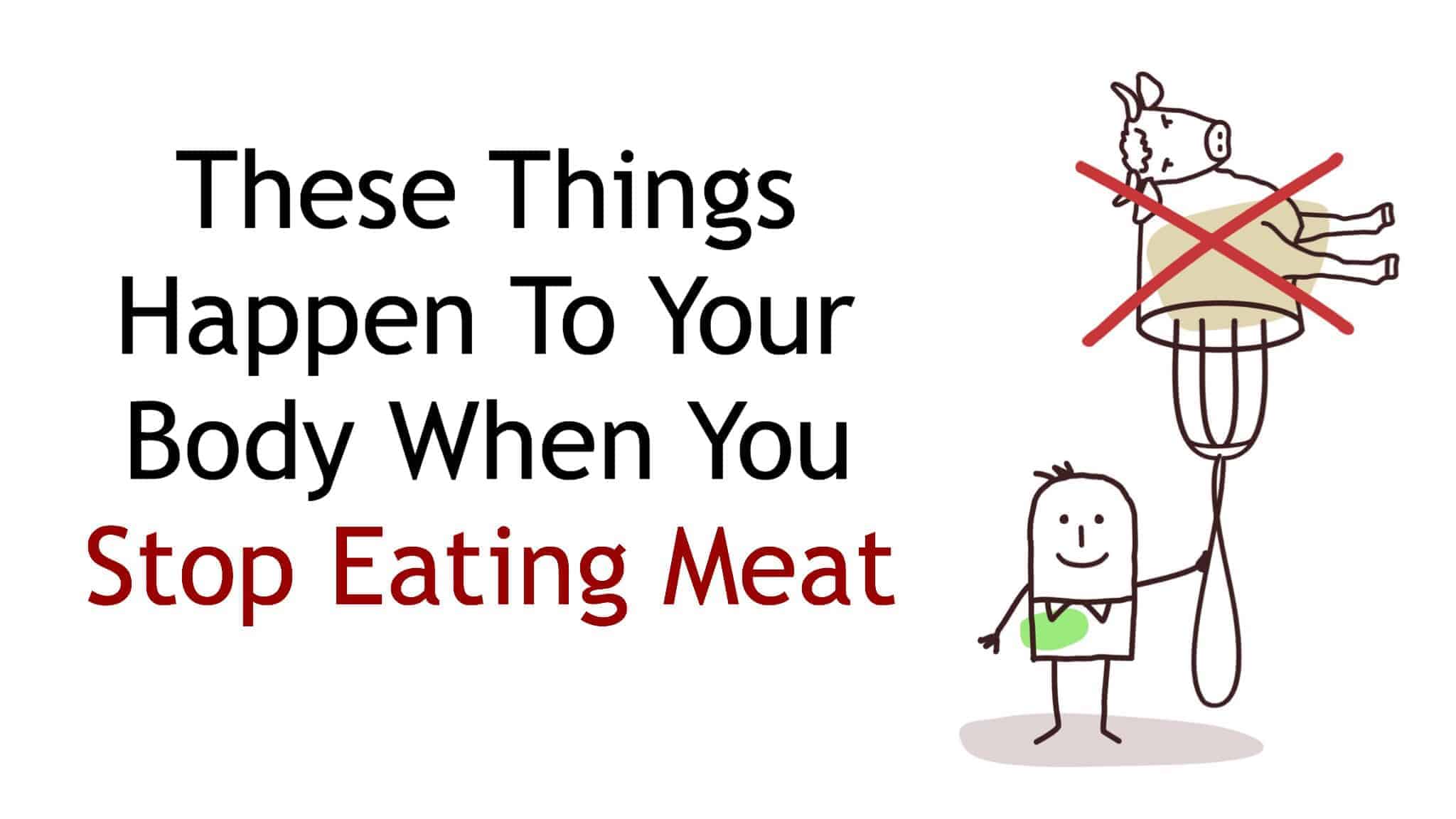To start with, we just want to say that we’re not bashing meat-eaters. So if you cut down on or eliminate meat, you find an extremely healthy option given the average American diet – one high in unhealthy fats, lacking fiber, and excessive sugar intake.
People abstain from meat for various reasons, including ethical, nutritional, and/or environmental concerns. While it is beyond the scope of this article to elaborate on the rationale of vegetarianism/veganism, the dietary practice is buttressed by plenty of scientific evidence.
The consumption of heavily processed meat, which is (by far) the most common type eaten, can hurt our bodies. Conversely, a meat-free diet can produce several positive benefits.
This article discusses some of the benefits of eliminating meat from your diet.
Let’s get going!
These Things Happen To Your Body When You Stop Eating Meat
“[The] meat we eat today is vastly different from the meat our ancestors ate. Back in the day, animals roamed free and ate grass, insects or whatever was available to them…Today, some of our meat products go through even more processing…they are smoked, cured, then treated with nitrates, preservatives, and various chemicals.” – Kris Gunnars, BSc
1. Inflammation takes a nosedive
Chronic inflammation link to the development of various diseases, including atherosclerosis, autoimmune diseases, diabetes, cardiovascular disease, and stroke. As a result, a diet high in heavily processed foods, including meat, raises the body’s inflammation level.
Meanwhile, a diet with plenty of fruits, whole grains, vegetables, legumes, and tuberous foods (potatoes, carrots, beets, yams, etc.) has been shown to ward off inflammation. High levels of antioxidants, fibers, and phytonutrients contribute to this anti-inflammatory effect.
2. You produce more “friendly bacteria”
Trillions of microorganisms live within our innards, many of which are vital to our overall health. Some of the roles of “friendly bacteria” include maintaining gut health, aiding digestion, strengthening the immune system, preserving healthy tissue, and protecting us from cancer.
Plant-based foods enhance the abovementioned benefits, while low-fiber foods disrupt the microbiome (our “collection” of microorganisms.) Health-promoting bacteria are particularly important in the gut, where toxic byproducts from meat and other processed foods increase the risk of high cholesterol, stroke, and heart attack.
3. You lower the risk of type 2 diabetes
In a 17-year study published in the journal Annals of Nutrition and Metabolism, researchers discovered a strong correlation between the frequency of meat consumption and increased diabetes risk. Here are some of the study’s observations:
- Weekly meat eaters were 29% more likely than non-meat eaters to develop diabetes.
- Frequent consumers of processed meats were 38% more likely to develop diabetes.
- Over the 17 years, participants whose diets included meat at least once per week were 79% more likely to develop diabetes than vegetarians over the same tenure.
Contributing to the disproportionate rates of diabetes in meat eaters are animal fat, nitrate preservatives, heightened inflammation, obesity, and suppression of insulin function.
Plant-based foods have demonstrated numerous diabetes resistant properties. Whole grains are also an excellent food source for fighting diabetes.
4. You’ll (still!) get the protein you need
Of the most prolific and mistaken views about meat is that it’s necessary to get the “right amount” of protein. This viewpoint is entirely false – here’s why.
First, the National Center for Health Statistics cites that the average meat eater consumes 150% more than the optimal amount of protein. Excessive protein consumption can produce many ill effects – diabetes, inflammation, cancer, heart disease, and weight gain.
Contrary to popular belief, plant-based (and other) foods contain high amounts of protein. Here’s a short list: soy (in any of its numerous forms), tofu, tempeh, chia seeds, edamame, quinoa, and legumes.
5. You’ll be doing your part for the environment and planet
Did you know that animal agriculture contributes to about 15% of all greenhouse gas emissions – exceeding the greenhouse gas emissions from every method of transport combined? Moreover, livestock (read: meat) and dairy processes account for about 70% of this total.
Besides being a massive contributor to the greenhouse gas (and climate change, global warming) problem, meat production is among the leading contributors to mass deforestation, destruction of animal habitat, and a significant threat to many species – some to the point of extinction.
In short, many reasons exist to eliminate (or reduce) our meat consumption. We’ve discussed the health and environmental impacts of meat production. But you should also not underestimate the ethical implications of animal agriculture.
“Factory farming,” as uncovered through numerous media outlets, often involves the inhumane, brutal treatment of animals en masse. Chickens are raised without access to sunlight; cows are knee-deep in their manure. Animals are repeatedly injected with growth hormones and other chemicals to expand their size – and, of course, the company’s profit.















 Community
Community

